Nautilus Institute’s Policy Forum‘s focus is on the timely publication of expert analysis and op-ed style pieces on the foremost of security-related issues to Northeast Asia. Its mission is to facilitate a multilateral flow of information among an international network of policy-makers, analysts, scholars, media, and readers. Policy Forum essays are typically from a wide range of expertise, political orientations, as well as geographic regions and seeks to present readers with opinions and analysis by experts on the issues as well as alternative voices not typically presented or heard. Feedback, comments, responses from Policy Forum readers are highly encouraged.
Policy Forum 12-03: The Post Kim Jong-il Era and the 2013 Regime in South Korea
Nak-chung Paik, Editor of The Quarterly Changbi and Professor Emeritus of English Literature at Seoul National University, asks “Which will be the greater variable, the leadership change in North Korea or the 2013 regime change in South Korea?” Paik asserts that since the North Korean succession does not show signs of sparking an imminent political or social upheaval, South Korea, with upcoming elections, has the opportunity to engage North Korea, establish a peace agreement and perhaps eventually an inter-Korean confederation. The key, Paik writes, is the 2013 South Korean regime: “Will we content ourselves with the same old ruling forces who have changed face and succeeded in “differentiation from Lee Myung-bak,” or will we make the historic transition to a new epoch not only in the South but possibly shared by South and North?”
Go to the articlePolicy Forum 12-02: North Korea’s Transition: Do Not Let Contingencies Distract from Realities
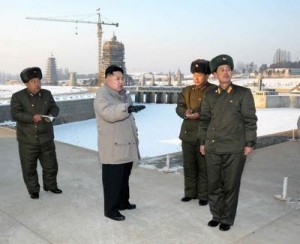
John Delury, Assistant Professor of East Asian Studies at Yonsei University and Chung-in Moon, Professor of Political Science at Yonsei University state that a near-term crisis in North Korea is unlikely for the simple reason that the country’s political system is unified around the new face of North Korea, Kim Jong-un. However, in the medium to longer term, the new leadership is likely to face a dilemma: whether Kim Jong-un can enhance North Korea’s prosperity without undermining the source of its strength — its nuclear weapons program. Delury and Moon argue that “[t]he most prudent course for key regional players is to re-open or expand channels with Pyongyang. The better we know the new leadership, the better we can respond to events as they unfold.”
Go to the articlePolicy Forum 12-01: The DPRK Interregnum: Window of Opportunity for the International Community
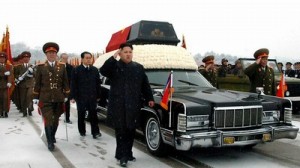
Victor Hsu, a Visiting Professor at the Korea Development Institute School of Public Policy and Management, argues that the post funeral interregnum in the DPRK should be seen as a window of opportunity for moving North Korea’s relationships in a constructive direction. To do this, Hsu suggests that the international community network and create a coordinated engagement plan that avoids duplication, maximizes the increasingly scarce resources among traditional donors and gathers lessons learned for future engagement. Donors could facilitate this work by supporting civil society knowledge-sharing efforts with the DPRK, which is more sustainable and less susceptible to the vicissitudes of inter-state relations.
Go to the articlePolicy Forum 11-45: Nothing Succeeds Like Succession: Chinese Language Perspectives on Kim Jong-Un’s Transition to Power
Roger Cavazos, a Nautilus Institute Associate and consultant on North-East Asia, writes, “The breathtakingl…
Go to the articlePolicy Forum 11-44: The Party as the Kingmaker: The Death of Kim Jong Il and its Consequences for North Korea
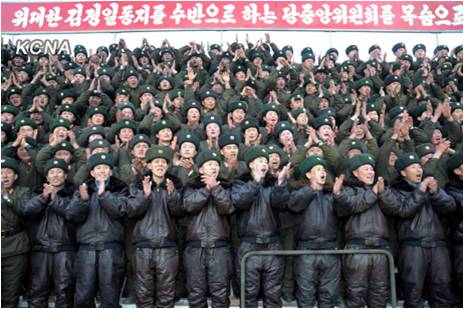
Ruediger Frank, a Professor of East Asian Economy and Society, University of Vienna and Adjunct Professor, Korea University and the University of North Korean Studies, writes, “The big question now is will the North Korean elite and population accept the Central Committee’s decision, and will they welcome Kim Jong Un as the new leader? History teaches us that things do not always proceed according to plan or conventional wisdom. We cannot exclude the possibility of ambitious individuals testing the opportunities…There are powerful individuals like Choe Yong Rim, Prime Minister; Kim Young Nam, Head of State; Jang Song Thaek, Kim Jong Il’s brother-in-law and alternate member of the Politburo, and his wife and Kim Jong Il’s sister Kim Kyong Hui who is a regular Politburo member and a General…Will they back up Kim Jong Un, or try to manipulate and sideline him?”
Go to the articlePolicy Forum 11-43: Kim Jong Il’s Death Suggests Continuity Plus Opportunity to Engage
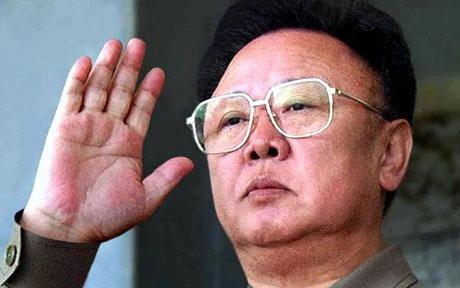
Peter Hayes, Scott Bruce, and David von Hippel of the Nautilus Institute, write, “Ironically, Kim Jong Il’s death may make Korea the land of the morning calm for at least a year, during which political transitions will also occur in China, South Korea, Japan, Russia, and the United States… Unless Kim Jong Un throws the nuclear strategy out the window and starts again, the outlines of the engagement agenda are already clear—send the North Koreans energy and food aid to meet both short-term humanitarian and medium/long-term development needs, help them build a safe small light water reactor, and bring them into an international enrichment consortium that would lead them to reveal the sum total of their enrichment program.”
Go to the articlePolicy Forum 11-42: Japan’s Nuclear Village Wages War on Renewable Energy and the Feed-in Tariff

Andrew DeWit, a Professor of the Political Economy of Public Finance at the School of Policy Studies, Rikkyo University and an Asia-Pacific Journal Coordinator, discusses how Japan’s powerful nuclear village is struggling to regain control of the nation’s feed-in tariff (FIT) after a legislative bill passed August 26, 2011 shifted control of the pricing structure of the FIT from the nuclear-sympathetic Ministry of Trade Economy to a newly formed committee publicly tasked with expanding investment in renewable energies.
Read a response to this article here.
Go to the articlePolicy Forum 11-41: A Code of Conduct for the South China Sea: What Should It Contain?
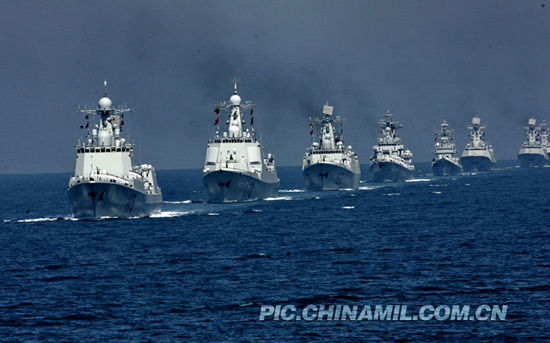
Mark Valencia, Nautilus Institute Associate and NARP Research Associate, explores options for the upcoming ASEAN and China negotiations concerning a Code of Conduct (CoC) to govern activities in the South China Sea. There are hopes that a Code can be presented and approved at the ASEAN-China 2012 summit, but the key elements have yet to be decided. Valencia contends that the CoC must include an agreement as to 1) where, to whom, and to what the Code applies, 2) how it addresses non-state actors and Taiwan, and 3) the scope of the Code—which should broad, and address resource exploration and exploitation, marine scientific research, and military activities.
Go to the articlePolicy Forum 11-40: The 2012 Nuclear Security Summit: Opportunities and Challenges
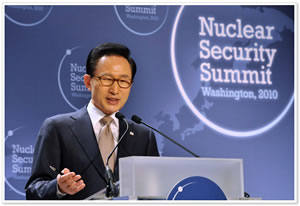
Duyeon Kim, Deputy Director of Non-Proliferation at the Center for Arms Control and Non-Proliferation, writes, “There are clear ways in which Seoul can capitalize on its strengths to flavor the 2012 [Nuclear Security Summit] with a “Korean twist” as it maintains depth on key substantive issues that ensure the security of nuclear materials, parts, and facilities…The challenge lies in clearly demonstrating that the benefits outweigh the costs, and that states would have a national interest in further investing their political capital in nuclear security.”
Go to the articlePolicy Forum 11-39: Not Bad Options for the Six Party Talks
Roger Cavazos, a Nautilus Institute Associate, provides a brief overview North Korean diplomatic activities during the past few months. He concludes that the DPRK’s recent moves to establish international rail and educational links and sudden changes in the positions of some key Six Party Talk leaders holds promise of changes in the DPRK. “The DPRK seems substantively different and might be ready to take some steps on its own. The DPRK will continue to have a high degree of centralized control, but there are strong, likely irreversible trends to decentralize some of that power. If no one reaches back towards those who are reaching out (e.g [the DPRK] in education) or those who are taking a risk by welcoming in limited outside forces (e.g. [the DPRK] re-establishing train lines) we will likely lose many opportunities for a long time.”
Go to the article
